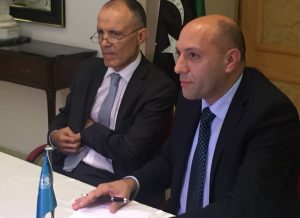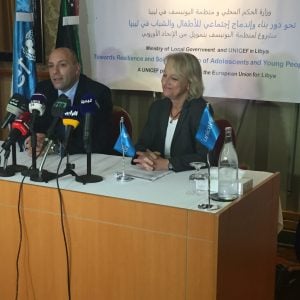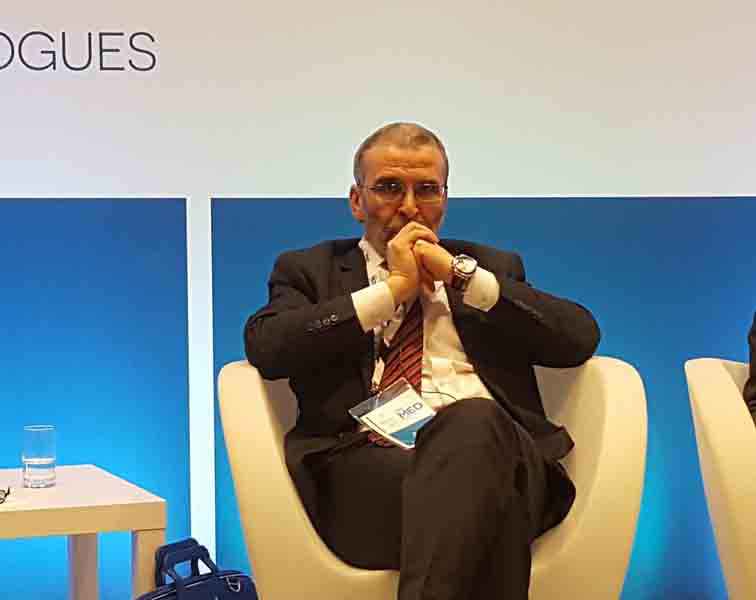By Michel Cousins.

Tunis, 12 November 2016:
The UN children’s organisation UNICEF and the Presidency Council’s local government ministry have signed an agreement under which a number of projects aimed at enabling young people to play an active role in society will be undertaken at local level in the municipalities.
UNICEF has already signed memorandums with 27 municipalities across Libya and these will also be incorporated into the joint venture.
The agreement was signed in Tunis on Thursday by Ghassan Khalil, the special representative of UNICEF for Libya, and Abdul Majid Abugrara on behalf of the acting minister Bidad Gansu Massoud who was unable at the last minute to fly to Tunis.
In a related move, UNICEF and the EU announced immediately afterwards that €3.6-million would be spent on helping young people – specifically on a project entitled “Towards Resilience and Social Inclusion of Adolescents and Young People in Libya”. It is aimed at promoting the social, economic, political and physical wellbeing of young Libyans.
Run in cooperation with the local government ministry, the EU will provide the lion’s share of the funding: €3 million.
The intention, EU ambassador Bettina Muscheidt was to help protect a whole generation of young Libyans going through a difficult transition. It was vital, she said, not to create “a lost generation”. There was, she explained, evidence that Libyans were losing faith in the country’s future and leaving – even joining the transitory migrants on the boats.

Libya was a country of tremendous opportunities, the EU ambassador said. It must not become one where its youth felt they have to go elsewhere for opportunities. Young Libyans needed to feel that there were reasons to stay, and that there were programmes and projects working for them.
This particular project, she said, was designed to listen to young people and, though education programmes and extracurricular activities then help devise programmes giving them the chance to have a stake in their local communities.
It was important not to create a “lost generation”, Bettina Muscheidt said








